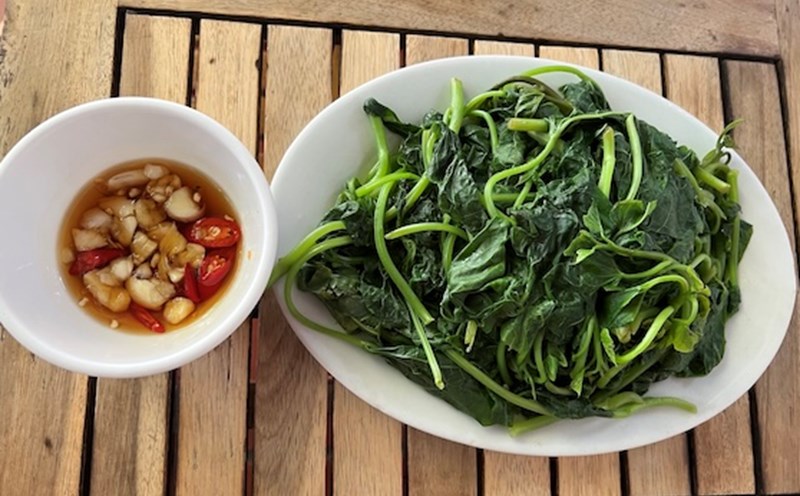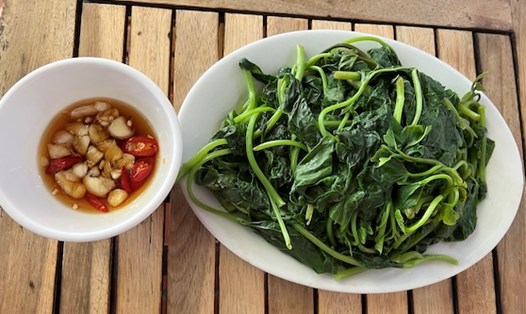In particular, supplementing vegetables rich in vitamins and antioxidants is a smart choice to help protect eyesight and prevent eye diseases such as macular degeneration, dry eyes or cataracts.
What to eat for breakfast to be good for the eyes
First of all, spinach is a vegetable that should be prioritized. According to research, spinach is rich in lutein, zeaxanthin - two carotenoids in the retina that help filter blue light and fight strong antioxidants.
A 100g serving of cooked spinach can provide up to 12mg of lutein, almost the same as the recommended daily intake for the eyes. Eating spinach for breakfast, stir-fry with eggs or make a green smoothie helps absorb fat and increases eye protection.
Second, broccoli is also an ideal vegetable. Broccoli contains a lot of vitamin C, beta-carotene, sulforaphane, which have anti-inflammatory properties and protect the retina from damage caused by light. Research shows that sulforaphane in broccoli can prevent eye cell damage caused by oxidative stress.
Third, carrots, although not vegetables, are often eaten as breakfast vegetables, containing high levels of beta-carotene (vitamin A), which is important for retina and vision in low light conditions. A cup of carrot smoothie in the morning or combined with oatmeal and yogurt is a convenient and nutritious choice.
Breakfast should include vegetables such as spinach, broccoli and carrots to increase eye nutrients.
These vegetables are rich in lutein, beta-carotene, vitamin C. These are ingredients that have been scientifically proven to support eyesight and effectively prevent eye diseases.










